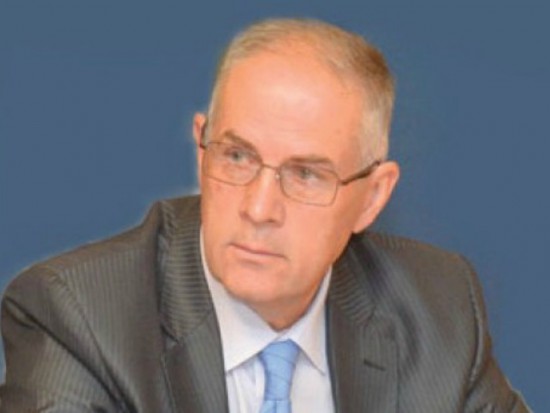Montenegro MPs to Grill Anti-Corruption Chief
Parliament in Montenegro has summoned the head of the anti-corruption agency to answer claims that lack of professionalism and political pressure on the agency are delaying its work.
The Anti-Corruption Agency director Sreten Radonjic | Photo: The Anti-Corruption Agency website.
A parliamentary committee has demanded a hearing with the head of the Anti-Corruption Agency, Sreten Radonjic, on Wednesday, following claims by the opposition and human rights watchdogs that corruption remains pervasive in the public administration and the courts.
Radonjic, a retired police officer who was former assistant minister and head of the police criminal department, will appear before parliament’s anti-corruption committee to explain what his agency has done since January 1, when it began to operate.
The agency faces criticism that has not yet started to publish reports on the assets and income of public officials, although this was required by a deadline of March 31. In addition, the agency has been accused of not examining whether the assets of state officials had increased significantly from when they took office.
“The anti-corruption agency is a farce,” Vanja Calovic, director of MANS, an NGO that investigates corruption, conflicts of interest and parliamentary activities, said recently. “It was created just to show a response following pressure from the EU and US, but up to now the investigations have only concerned small fish,” she said. “No one wants to create problems considering the [EU] accession process that is underway,” Calovic told a group of European journalists meeting in Podgorica last week.
In 2014, Montenegro adopted a Law on Prevention of Corruption – one of five priority legislative measures required in the context of the negotiating process with the EU.
The law forced the goverment to set up the independent Anti-Corruption Agency, which was supposed to unite and strengthen the competences of all existing institutions combating corruption in Montenegro. The agency has jurisdiction over preventing conflict of interest, restricting the exercise of public functions, checking asset cards and the receipt of gifts, donations and sponsorships.
A significant part of the new regulations relate to the performance and protection of whistleblowers. But anti-corruption watchdogs have complained that the agancy’s mechanisms to protect and reward people who report corruption are too weak.
Justice Minister Zoran Pazin said that the government was well aware of the problem with the fight against the corruption. “We are working on this on two fronts: on one side, we have created an anti-corruption agency that has the aim of preventing conflict of interests in the public administration and to supervising the financing of parties, on the other side, we are working on suppression of the phenomenon,” Pazin told the media last week.
A US State Department report, published on April 13, said that politicization, poor pay and lack of motivation and training of public servants had created fertile ground for corruption in Montenegro, and while the agency’s capacities had been improved they remained limited.
The report said the public in Montenegro view corruption as endemic in the government and elsewhere in the public sector at both local and national levels. This is particularly the case in the fields of health, higher education, the judiciary, customs, political parties, police, urban planning, the construction industry and employment.
There was evidence that some government officials engaged in corrupt practices with impunity, the report added.
26 April 2016

